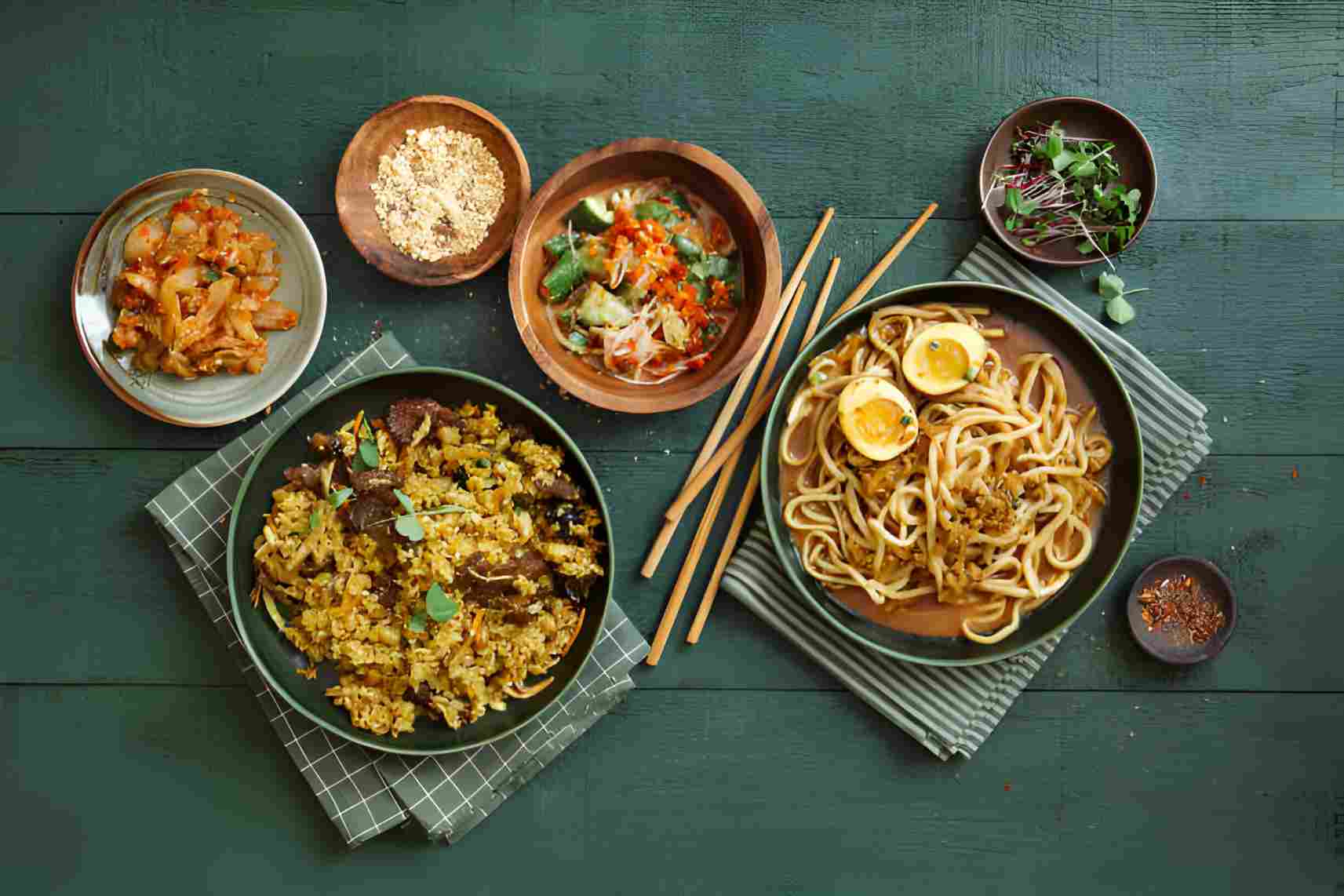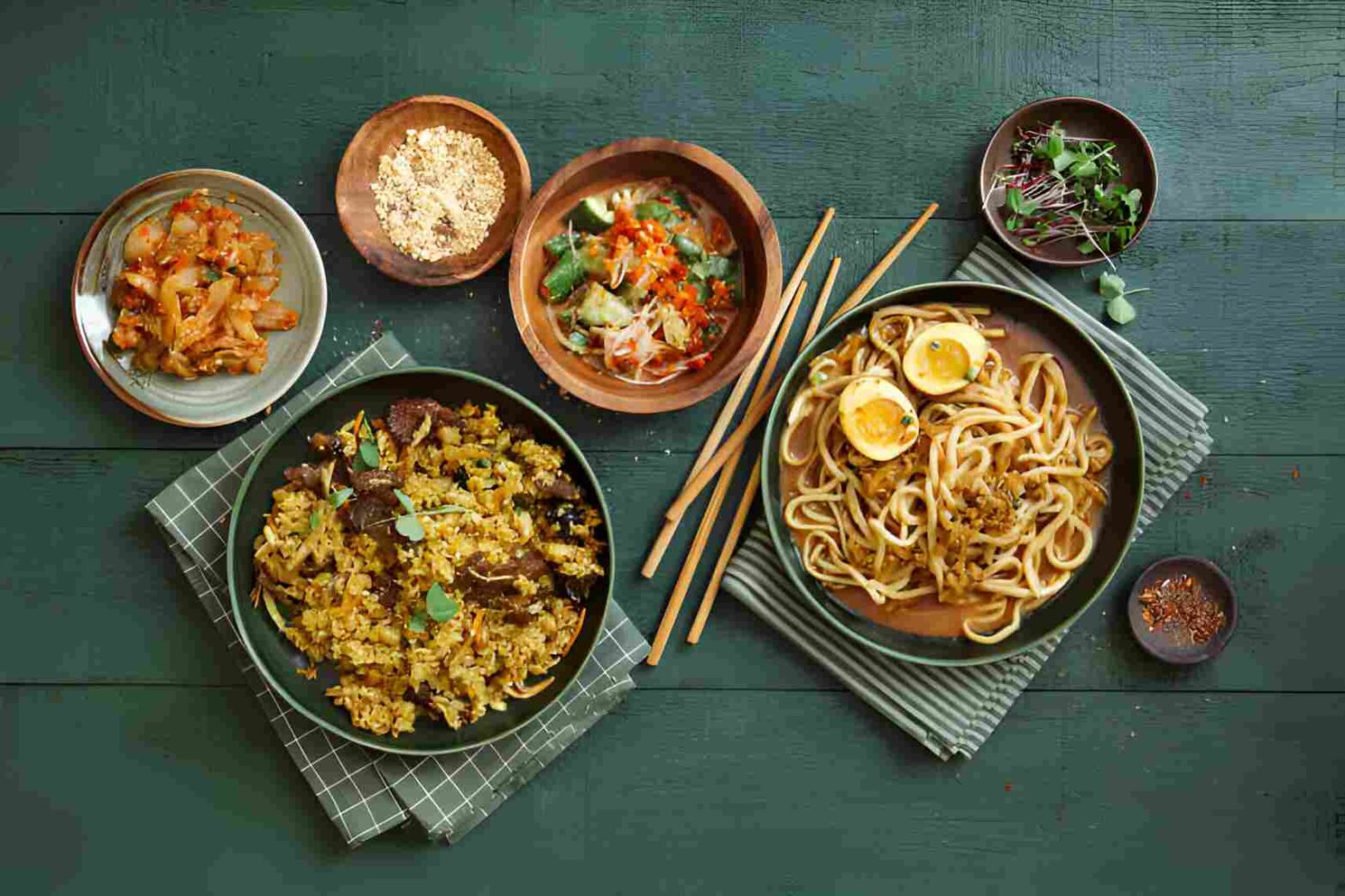
In a world where nutritional trends and fad diets appear to come and go with the seasons, Korean cuisine is one culinary heritage that has endured. Korean cuisine, which abounds in vivid hues, strong tastes, and a diverse array of ingredients, is not only a culinary feast for the senses but also a nutritional powerhouse just waiting to be unlocked. Come along on a delectable adventure as we investigate the various ways that Korean food may support a healthy, well-balanced diet and promote wellbeing from the inside out.
The Freshness Aspect: Incorporating Veggies into Every Bite
Fresh, in-season ingredients are deeply revered in Korean cuisine, where veggies frequently take center stage in meals. The abundance of the land in all its splendor is celebrated in Korean cuisine, which features a wide variety of bright peppers, radishes, and crisp leafy greens as well as crunchy root vegetables.
A notable example is the popular Korean delicacy known as bibimbap, which literally means “mixed rice.” Every bite of bibimbap, which is loaded with a variety of fresh veggies like spinach, carrots, bean sprouts, and mushrooms, delivers a nutritional rainbow. These veggies are vital for maintaining general health and wellbeing because they are low in calories and high in vitamins, minerals, and antioxidants.
Korean cuisine Fueling the Body with Seafood and Lean Meats
Although Korean food is well known for its strong flavors and spicy spices, it also offers a vast array of meals high in protein that appeal to both seafood and meat lovers. Korean cuisine offers a wide variety of dishes to suit every taste and dietary requirement, from delicate pig ribs and delicious grilled beef to flavorful seafood stews.
A prominent source of protein in Korean cooking is tofu, a flexible component derived from soybeans that is a mainstay in numerous customary recipes. Tofu is a heart-healthy substitute for meat since it is low in cholesterol and saturated fat, in addition to being a great source of plant-based protein. This nutrient-dense ingredient adds depth and variety to Korean meals while encouraging muscle growth, healing, and general vitality. It is appreciated in spicy tofu stew (soon tofu) or crispy tofu stir-fry.
Fermented Delights: Investigating Kimchi’s and Other Foods’ Potential for Gut-Healing
Without discussing kimchi, the famous fermented side dish that has captured palates worldwide, no discussion of Korean food would be complete. Kimchi is made of Napa cabbage, radishes, and a mixture of spices. It is naturally fermented, which brings out a wealth of health benefits and improves the flavor.
Probiotic-rich, high in vitamins and good bacteria, kimchi is praised for supporting gut health, enhancing immunity, and lowering inflammation in the body. Consuming fermented foods like kimchi on a regular basis has been linked to improved gut health, improved nutrient absorption, and even a lower chance of developing some chronic illnesses including diabetes, heart disease, and obesity.
But when it comes to Korean cuisine’s fermented delicacies, kimchi is just the beginning. Korean cuisine boasts a wide variety of fermented condiments that enhance flavor and complexity, as well as the ability to cure the gut. Examples of these condiments include sour doenjang, spicy gochujang, and savory ganjang, or fermented soybean paste.
How Korean Food Balances the Body, Mind, and Soul
In a society where convenience frequently takes precedence over healthiness and fast food is king, Korean food shines as a symbol of harmony and balance. Fresh vegetables, lean meats, and fermented foods like kimchi are highlighted in Korean cuisine, which provides a comprehensive approach to nutrition that nourishes the body, mind, and spirit.
Korean food epitomizes mindful eating and culinary artistry with its focus on full, unprocessed ingredients and time-honored cooking methods. Korean cuisine encourages us to slow down, enjoy each bite, and recognize the connections between food, culture, and community—from the meticulous preparation of banchan (side dishes) to the creative presentation of main courses.
Thus, the next time you have a bowl of hot and spicy kimchi jjigae or steaming bibimbap, take a moment to appreciate the flavors and the nutrition and energy that Korean food offers. Korean cuisine offers a tasty journey to wellbeing that satisfies the senses, nourishes the body, and uplifts the spirit. From its colorful greens to its protein-rich meats and gut-healing fermented foods. Salutations!
To sum up, Korean food has a wealth of health advantages that can support a well-rounded, nutrient-dense diet. Korean cuisine offers a delectable and healthful approach to nurture the body, mind, and spirit. From its concentration on fresh vegetables and lean proteins to its love affair with fermented dishes like kimchi. So why not take a culinary trip and experience the health benefits of Korean food for yourself? Your body and taste buds will appreciate it.

